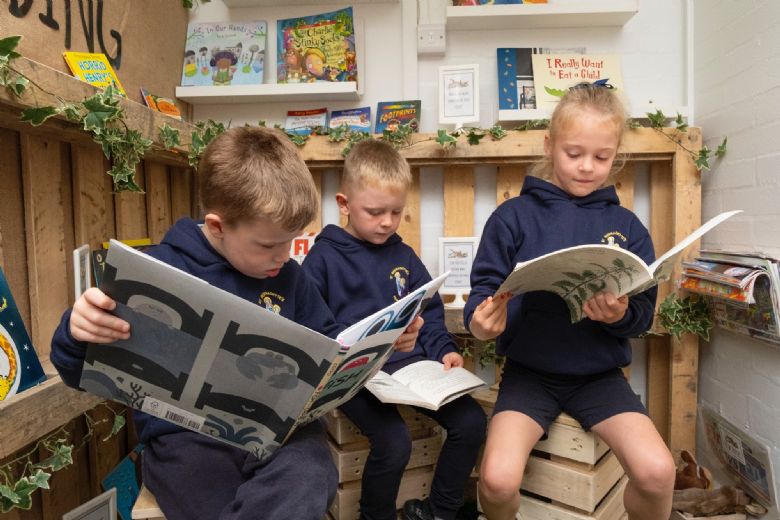ENGLISH
‘When I read great literature, great drama, speeches, or sermons, I feel that the human mind has not achieved anything greater that the ability to share feelings and thoughts through language.’ James Earl Jones


At St. Bernadette’s, our English curriculum is designed to enable our pupils to formulate and develop their communicative competences through practicing listening, speaking, reading, writing and linguistic knowledge. We believe that by nurturing and embracing these skills, we are opening up an inspirational world of possibilities and creativity. It is our aim to enrich and empower our children’s vocabulary so they are able to articulate themselves clearly and confidently. We endeavour to inspire our children to become fluent readers who develop a life-long love of literature, whilst also giving them the opportunity to develop their own style and expression through writing. As with all our subjects, our subject design interrelates different strands of knowledge:
Substantive knowledge represents the English content that is taught in each year group. In planning, this knowledge is the content we want pupils to know and remember including genre specific vocabulary.
In reading, substantive knowledge is the ability to decode and sight read words. This allows children opportunities to read for pleasure, including reading and reciting poetry, and develop their vocabulary. Children are then able to apply their knowledge of reading strategies to comprehend a range of texts. In writing, substantive knowledge is the ability to effectively plan, draft, and construct writing for different purposes. When constructing writing, this involves knowledge of structural, grammatical and linguistic features as well as knowledge of handwriting and
spellings.
 Themes are explored in each year group through the different genres. By highlighting these themes, we are able to ensure that connections are made so that children can easily activate prior knowledge and begin to develop familiarity and confidence, which then supports their future learning within the subject. In English, our themes include:
Themes are explored in each year group through the different genres. By highlighting these themes, we are able to ensure that connections are made so that children can easily activate prior knowledge and begin to develop familiarity and confidence, which then supports their future learning within the subject. In English, our themes include:
● Fiction
● Non-Fiction
● Poetry
Disciplinary knowledge represents the understanding of a person with effective communicative competencies. This knowledge is drawn from the National Curriculum Programmes of Study and is mapped out progressively to ensure there are opportunities for pupils to build, revisit and deepen their knowledge and understanding.
Assessment in English is measured by the pupil’s ability to apply their knowledge through our clearly defined outcomes at the end of each unit of learning across the curriculum. This provides information on the children’s ability to use and apply new knowledge in a subject specific context.


